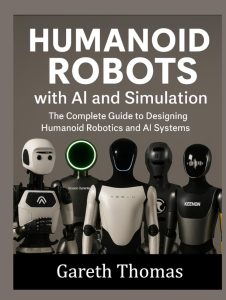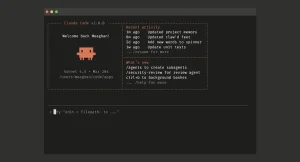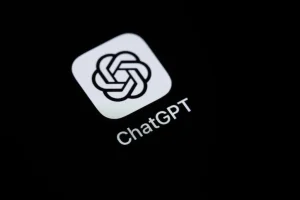The Mystery of Gemini 2 and the Chatbot Arena

In the fast-paced world of AI, mysterious events often capture attention. This week, buzz surrounds the chatbot Arena, where a new model has emerged. It’s not just any model; folks are calling it ‘mystery Gemini 2’. This phenomenon has sparked curiosity and speculation among AI enthusiasts.
Adding to the intrigue, Gemini 2 recently answered a trending question about the number of Rs in ‘strawberry’ with impressive accuracy, hinting at its recent training. This capability has drawn comparisons with experts who might be browsing recent data online, and it’s only available in this digital arena for now.
In the chatbot Arena, a niche domain for AI model testing, Gemini 2 has surfaced. You input a prompt, and it’s sent to two models for responses. Then, you choose the better answer, not knowing which model created it until revealed.
This model correctly answered how many Rs are in ‘strawberry’, a task where others faltered. Such feats hint at Gemini 2’s potential to access fresh data and respond accurately. Rumors suggest it might be an early release model.
The Chatbot Arena is buzzing with Gemini models. Besides Gemini 2, there’s a mystery Gemini 1, an anonymous model, and the Gemini test bot. Each carries its speculation and potential.
Could these be part of a grand plan by Google or another tech giant? People are guessing which models might make it to the public stage first. The competitive landscape is heating up.
As mystery models line up in the Chatbot Arena, speculation runs wild. Some suspect Google’s innovation, while others point to other tech leaders. The diversity and mystery add layers to the already intense competition.
AI enthusiasts eagerly await developments. A notable churn of models could mean major announcements or breakthroughs soon, possibly reshaping tech landscapes once again.
This bubbling excitement isn’t just hype. If past trends hold, these models may jump out of testing and into mainstream use. Watch closely – the countdown may have already started.
Google appears to be stepping up its AI game. Its Gemini model has soared to the top of the Arena rankings, surpassing big names like GPT-4. New reasoning engines seem to power this advancement.
With Google’s AI Studio as its testing ground, this novel model gains attention. Notably, it outperforms others on important metrics, gathering valuable feedback. But Google’s not just about chatbots – there’s more innovation at play.
Google’s exploration goes beyond language models. Their robot is making waves, mastering table tennis against human players. Combining AI with robotics breaks new ground.
The robot learns through simulators, advancing skills and gaining real-world data. It’s a test of AI’s potential in physical tasks, confronting hardware challenges with creative solutions. Such projects highlight the vast possibilities AI unlocks.
AI’s evolution is unpredictable. Some experts foresee a massive shift by 2025. Autonomous AI that tackles complex tasks could redefine normalcy across industries.
Long-term plans may be pointless in this rapidly changing landscape. Companies might struggle to predict the future effectively, even the biggest AI players see surprises awaiting.
Google’s former Chief Business AI Officer hints at the unknowns that lie ahead. Fast cycles and unpredictable developments create a volatile landscape.
It’s a challenging environment where strategic planning needs constant adaptation. As AI grows, so does the uncertainty that accompanies it, underscoring the need for agile strategies.
AI’s potential stretches into realms like robotics and strategic industry shifts. Google is leading by blending AI logic with physical capabilities.
Such innovations not only enhance AI proficiency but also tackle age-old automation challenges. As industries adapt, AI’s influence is evident everywhere, reshaping how tasks are performed.
Mark Zuckerberg’s open-source AI initiative echoes across the tech world. Making systems accessible encourages collaboration and improvement.
It’s not just altruistic – an open ecosystem could drive quicker AI advancement. More minds and entities working on a single platform make for faster, more effective solutions.
AI development isn’t without its controversies. Recent disputes at OpenAI spotlight the complexity of tech decisions.
Board dynamics and leadership choices reflect the pressures of guiding major AI entities. These internal challenges highlight the broader patterns at play in the evolving AI narrative.
Legal battles emerge as AI giants grapple with ethical and operational issues. Elon Musk’s lawsuit against OpenAI marks a significant confrontation.
Disputes like these showcase competing visions of AI’s role in society. As the field matures, expect more such debates to unfold, influencing AI’s trajectory.
Open-source advocates champion transparency and collaboration, questioning closed systems. Zuckerberg’s Llama project illustrates these ideals.
This move aims to spark collective improvement. By sharing tools, tech developers create an environment where innovation thrives, lifting the entire ecosystem.
The AI scene isn’t static. New models and technologies are on the horizon. From Google’s chatbots to evolving hardware, the landscape shifts rapidly.
Anticipation drives excitement. As players experiment and innovate, the future remains unpredictable. What’s certain is that AI continues to transform the world.
The journey is ongoing. Each development adds to AI’s vast potential. For now, Google’s Gemini models and robotic progress hint at new possibilities.
Stay alert. The AI journey is just beginning, with endless discoveries awaiting their turn to unfold.
The AI world charges toward the future, where new models redefine tech possibilities. Rapid advancements fuel curious speculations, hinting at transformative shifts ahead.







